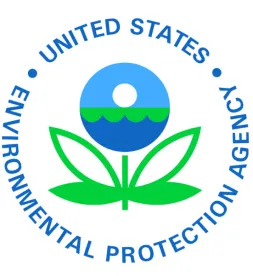Scott Pruitt was confirmed as the U.S. Environmental Protection Agency Administrator on February 17, 2017. In advance of his confirmation, President Trump began laying the foundation for policy changes within the environmental programs of the United States as noted in the Executive Orders referenced below.
With the national news media providing minute by minute updates, this weekly column will provide an overview of the federal and state policy relevant events of the week with links to pertinent documents for your ready reference.
Tuesday, February 28, 2017. Waters of the United States. President Donald Trump issued an Executive Order at the White House directing the U.S. Environmental Protection Agency (EPA) and the U.S. Army Corps of Engineers to review and then rescind or revise the 2015 Clean Water Rule: Definition of “Waters of the United States”.
The Executive Order requires the Administrator, the Assistant Secretary, and the heads of all executive departments and agencies to review all orders, rules, regulations, guidelines, or policies implementing or enforcing the final rule entitled “Clean Water Rule: Definition of ‘Waters of the United States,'” 80 Fed. Reg. 37054 (June 29, 2015). Such a comprehensive review of the myriad of implementation tools is an acknowledgement of the historical concern by state regulators and the regulated community about the implementation of policy by EPA that has not undergone public notice and comment.
The Executive Order also requires, the Administrator and the Assistant Secretary to consider interpreting the term “navigable waters,” as defined in 33 U.S.C. 1362(7), in a manner consistent with the opinion of Justice Antonin Scalia in Rapanos v. United States, 547 U.S. 715 (2006). Scalia provided in the plurality opinion that the Clean Water Act confers federal jurisdiction over non-navigable waters only if the waters exhibit a relatively permanent flow, such as a river, lake, or stream. In addition, a wetland falls within the Corps’ jurisdiction only if there is a continuous surface water connection between it and a relatively permanent waterbody. Scalia’s opinion emphasized the cooperative federalism imbedded in the CWA which protects the primary responsibilities and rights of the States. State’s rights relative to environmental policy is a hallmark of Administrator Pruitt’s career.
The Executive Order directs that with regard to litigation before the Federal courts related to the final rule, prompt notification of pending review of the rule be provided to the Attorney General for management.
EPA Administrator Scott Pruitt offered the following statement: “EPA intends to immediately implement the Executive Order and submit a Notice to the Office of the Federal Register announcing our intent to review the 2015 Rule, and then to propose a new rule that will rescind or revise that rule. The President’s action today preserves a federal role in protecting water, but it also restores the states’ important role in the regulation of water.”
In the pre-publication Federal Register Notice EPA and the US Army Corps of Engineers provides that rulemaking may be withdrawn and assessed consistent with the law as described, “Agencies have inherent authority to reconsider past decisions and to revise, replace or repeal a decision to the extent permitted by law and supported by a reasoned explanation. FCC v. Fox Television Stations, Inc., 556 U.S. 502, 515 (2009) (“Fox”); Motor Vehicle Manufacturers Ass’n of the United States, Inc., et al, v. State Farm Mutual Automobile Insurance Co., et al. 463 U.S. 29, 42 (1983) (“State Farm”). Importantly, such a revised decision need not be based upon a change of facts or circumstances. A revised rulemaking based “on a reevaluation of which policy would be better in light of the facts” is “well within an agency’s discretion,” and “[a] change in administration brought about by the people casting their votes is a perfectly reasonable basis for an executive agency’s reappraisal of the costs and benefits of its programs and regulations.” National Ass’n of Home Builders v. EPA, 682 F.3d 1032, 1038 & 1043 (D.C. Cir. 2012) (citing Fox, 556 U.S. at 514-15; quoting State Farm, 463 U.S. at 59 (Rehnquist, J., concurring in part and dissenting in part)).
Wednesday, March 1, 2017. Oil and Gas Industry Methane Emissions Information Collection Request Withdrawn. EPA Administrator Pruitt announced the agency was immediately withdrawing its request that owners and operators in the oil and natural gas industry provide information on equipment and emissions at existing oil and gas operations as provided in the pre-publication Federal Register notice. Therefore owners and operators – including those who have received an extension to their due dates for providing the information – are no longer required to respond. The basis for the action was that Pruitt would like to assess the need for the information that the agency was collecting through these requests. This action also comes after the agency received a letter on March 1, 2017, from nine state Attorneys General to include Patrick Morrisey – WV, and Governor Blevin – KY and Governor Phil Bryant of Mississippi and Kentucky, expressing concern with the pending Information Collection Request for Oil and Gas Facilities. The letter describes the pending federal litigation concerning EPA’s efforts to regulate methane emissions from new oil and gas facilities. Among the issues is whether EPA must develop an endangerment finding before regulating methane. The letter urges EPA to work with the agencies to assess existing methane emissions data, as opposed to seeking the burdensome and likely duplicative information request.
Friday, February 24, 2017. EPA extended comment period to proposed financial responsibility requirements for Hard Rock Industry.
Friday, February 24, 2017. Presidential Executive Order on Enforcing the Regulatory Reform Agenda.
Friday, February 17, 2017. Scott Pruitt confirmed as U.S. Environmental Protection Agency Administrator. Creating Regulatory Reform Officers to oversee the implementation of regulatory reform initiatives and policies to ensure that agencies effectively carry out regulatory reforms, consistent with applicable law.
January 30, 2017. Presidential Executive Order on Reducing Regulation and Controlling Regulatory Costs (“2 – 1 Regulatory Reform”). This order provides that any new incremental costs associated with new regulations shall, to the extent permitted by law, be offset by the elimination of existing costs associated with at least two prior regulations. Any agency eliminating existing costs associated with prior regulations under this subsection shall do so in accordance with the Administrative Procedure Act and other applicable law.
January 24, 2017. Executive Order Expediting Environmental Reviews and Approvals For High Priority Infrastructure Projects. Chairman of the CEQ shall coordinate with the head of the relevant agency to establish, in a manner consistent with law, expedited procedures and deadlines for completion of environmental reviews and approvals for such projects. All agencies shall give highest priority to completing such reviews and approvals by the established deadlines using all necessary and appropriate means.




 />i
/>i
